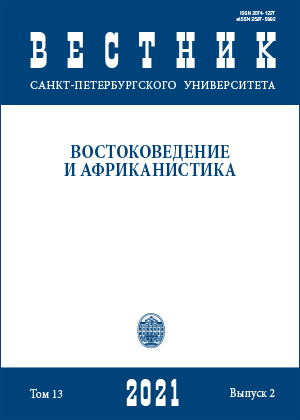Problems of the Historical Past in Japanese-Taiwanese Relations during the Chen Shui-bian Administration (2000–2008)
DOI:
https://doi.org/10.21638/spbu13.2021.211Abstract
Taiwan, which was ruled by the Japanese Empire from 1895 to 1945, still remains one of the few regions whose inhabitants do not emphasize the negative aspects of the colonial period. Discussions in Taiwanese society about the problems of the historical past traditionally are represented by two issues: the question of sovereignty over the Diaoyudao/Senkaku islands and the demand from Tokyo of an apology and compensation for Taiwanese “comfort women”. Moreover, both of these problems, even if they appeared on the domestic political agenda, were never acute and did not have a significant impact on the development of traditionally close Japanese-Taiwanese relations. Questions of the historical past, as a rule, represented only one part of the larger discussions regarding the national identity of the islanders and the search for models of further development of Taiwan. All these aspects of the “Taiwanese approach” to issues related to the problematic past came into full play during the presidency of Chen Shui-bian (2000–2008). During this time, Tokyo and Taipei maintained a rather high level of political contacts and encouraged cooperation between Japan and Taiwan despite the actualization of the “comfort women” issue, which became the baseline for new discussions about the colonial past and the role of Japan in developing modern Taiwan. The article discusses the approaches of Taiwanese authorities in 2000–2008 to the interpretation of Japan’s war-time past and colonial period of Taiwan history in the context of development of relations between Tokyo and Taipei.
Keywords:
Taiwan, Japan, Republic of China, “comfort women”, problems of the historical past, foreign affairs
Downloads
References
Downloads
Published
How to Cite
Issue
Section
License
Articles of "Vestnik of Saint Petersburg University. Asian and African Studies" are open access distributed under the terms of the License Agreement with Saint Petersburg State University, which permits to the authors unrestricted distribution and self-archiving free of charge.





